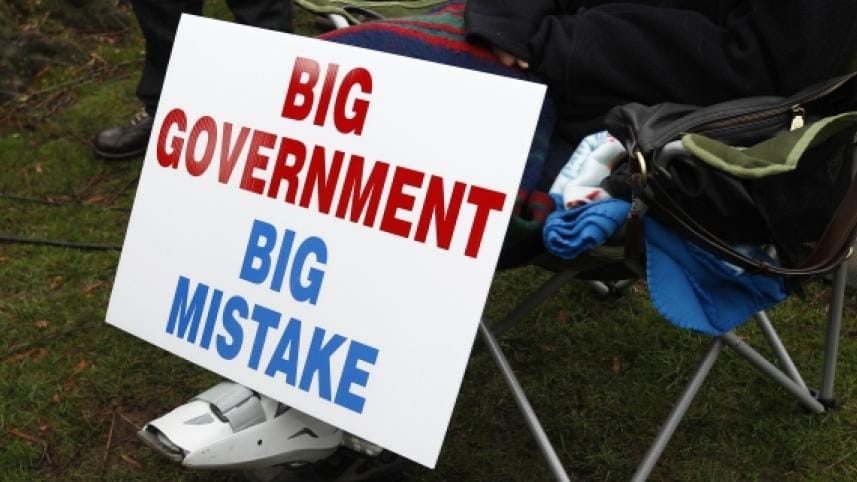Is there a third way for social equity markets?

For too long, we have been told the choice is between state and market. Former US President Ronald Reagan famously said, "Government is not the solution to our problem. Government is the problem." Together with former UK Prime Minister Margaret Thatcher, he launched the global shift towards "Free Market Fundamentalism." This was a right-wing reaction to the endless fiscal deficits and inflation generated by left-wing Keynesian economists' preference for government intervention to solve market failures.
By the 1990s, former US President Bill Clinton and UK Premier Tony Blair pioneered the neoliberal middle way, adopting free market ideas of privatisation, whilst preaching kinder, gentler social protection. Instead of solving government failure, they ended up with the failure of both market and government with rising inequality, climate warming, populism, and social polarisation. Neoliberal free market ideas, in effect, pushed a bigger government capture by big business and huge vested interests. This sparked forces of polarisation since the one percent benefited more than the 99 percent. The Guardian columnist George Monbiot argued that the failure of neoliberalism ended up with fascism that wants to go back to old times. US President Joe Biden's framing of the fight between democracy and autocracy sounds suspiciously like Big Business Democrats trying to look green and inclusive, versus MAGA (Make America Great Again) Republicans who seem like macho white supremacists to many non-Americans.
Economics or politics is supposed to be about why, what, and for whom. But behind that set of questions is: Who acts to deliver what the people want? Thus, the Trumpian call is for the private sector or Big Business to make change, whereas the Bernie Sanders solution is for more government to do the job.
Is finance serving the real sector, or is it eating up the real economy? When a government is too powerful and captured by the one percent, how different is that from an unelected bureaucracy ruling the 99 percent? Central banks just print money to enable the politicians to buy the votes. Once elected, everything is forgotten on promises till the next election. Top-down political structures cannot work when the feedback from the bottom-up is missing. Worse, welfare programmes end up not reaching the poor and underprivileged, which is exactly what the inequitable vaccine distribution showed amid the Covid-19 pandemic.
So what is the alternative to Big Business or Big Government?
Historically, we had the social institutions to deal with the problems of excessive state or markets – the importance of mutual, cooperative and community charitable work. When the social contract is broken, in the sense that the state is no longer functioning to deliver essential public goods and services or failing to protect the masses from raw capitalist greed, then communities organise to help themselves. Social enterprises are non-government or for-profit organisations that try to provide public goods not provided by the state or Big Business.
Some of the best public goods, such as changes in global public health, education, and Green Revolution, were financed by charity organisations like the Rockefeller Foundation. Today, the Gates Foundation are big funders of social change.
Driven by the young, social enterprises are beginning to make waves in the areas of climate action, gender, poverty, and social injustices. But their impact has been limited because they lack the knowhow or talent, funding, and branding.
Harvard business strategist Michael Porter was one of the first to ask why corporate philanthropy has not worked to fund more social enterprise work. The answer is that CEOs were not focused or incentivised to push corporate social responsibility (CSR). Today, as investors expect CEOs to deliver on ESG (environmental, social and governance), CEOs still face the problem on how to allocate corporate philanthropy resources.
The hard reality is that the best talent on organisation, knowhow and access to funding is with the for-profit corporations. Their employees may be best positioned in their spare time to help micro, small and medium enterprises (MSMEs) become more effective in delivering social projects that enable real change at the frontiers of climate action or social justice. Social finance is defined as the network of processes, decisions and institutions that finance the production of public goods with participation of the private sector. But that network does not exist, because MSMEs often are too small and weak to access the talent, funding, and branding/trust that donors (state, business, or large charities) demand.
But the technological platform for raising public funding already exists in the form of stock markets, which have the approval, listing, trading information, registration, clearing, settlement, and payment mechanisms. They simply do not operate for non-profit social enterprises.
Similarly, private equity/venture (PE/VC) capital firms already have the technology, knowhow, and funding to "coach" good companies for listing or raising capital for profit. So why can't there be PE/VC firms that use their portfolios of MSMEs to decide which ones have for-profit potential, and which can be groomed best in the not-for-profit social objectives?
In short, markets like Hong Kong, Singapore and Kuala Lumpur have the opportunity to create social equity markets. From a philosophy point of view, Islamic financial markets are actually risk-sharing stock markets with moral issues defined by the shariah. So far, few Muslim countries have used stock markets to make social change.
A third way, therefore, is already technically feasible. All it takes is some courage to think and act out of the box.
Andrew Sheng is one of Asia's foremost economists. He is based in Penang, Malaysia.
Copyright: Asia News Network




 For all latest news, follow The Daily Star's Google News channel.
For all latest news, follow The Daily Star's Google News channel. 

Comments